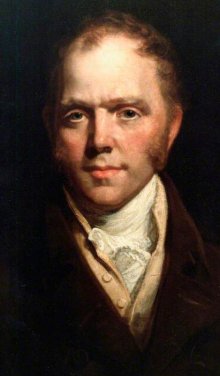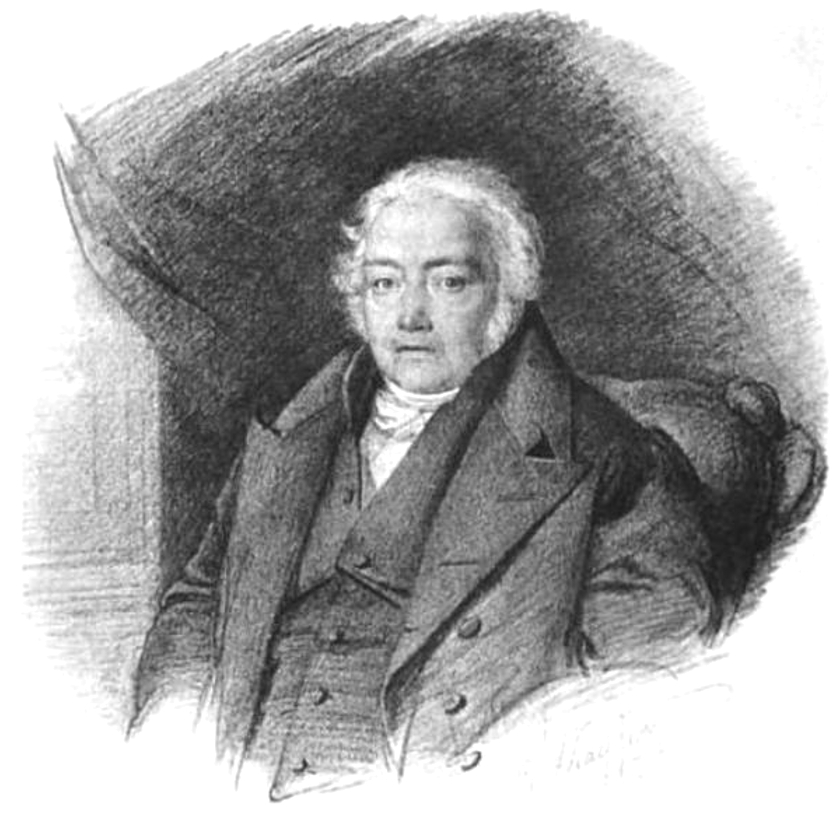 |
| Samuel Taylor Coleridge as a young man. |
Samuel Taylor Coleridge was born on
October 21, 1772 at Ottery St Mary, Devon, England.
He was the youngest of the fourteen children of an
impoverished vicar who died in the
boy’s ninth year. His early brilliance was recognized and he
was accepted as a charity student at
the School of Christ’s Hospital. He was
able to attend Jesus College, Cambridge
with the support of an elder brother. Despite his success as student including winning
a medal for a long poem in Greek,
he surrendered to the temptations of
campus life—then as now alcohol,
drugs (opium,) and sex. Opium addiction
would be his lifelong bane.
Coleridge
left school and enlisted in the Dragoons under an assumed name after a messy
affair with the sister of a friend. An indifferent
soldier, he frequently fell off his
horse. The Army was not disappointed
when a brother showed up and paid for
his release.
After
another abortive attempt at school, he schemed to form a utopian plantation in Pennsylvania. The articles
of covenant of Pantisocracy required
members to be married, so Coleridge rushed
into an unhappy marriage. Plans for the plantation, of course, collapsed and Coleridge turned more
heavily to opium.
 |
| William Wadsworth, Coleridge's friend, mentor, and collaborator. Together they practically invented English Romantic Poetry. |
He
was, however, serious about religion
and literature. He managed
to become ordained as a Unitarian
minister and made his living serving small
chapels while he began to write
seriously. He became a close friend of William Wordsworth. The two
poets together published Lyrical
Ballads, which included Coleridge’s The Rime of the Ancient Mariner. His reputation as a poet was immediately
made. The fame from the poem led to a £150 yearly annuity from the wealthy Unitarian Wedgewood family, the famous
manufacturers of fine china and porcelain. He was able to give up the ministry and
concentrate on his poetry.
Despite
success, he slid into greater opium dependency and fought dark depressions. Kubla
Kahn was written in 1797 and published in Christabel, Kubla Khan, and the Pains of Sleep in 1816 and is regarded
by most scholars as the product of
an opium vision.
He
was, however, serious about religion
and literature. He managed
to become ordained as a Unitarian
minister and made his living serving small
chapels while he began to write
seriously. He became a close friend of William Wordsworth. The two
poets together published Lyrical
Ballads, which included Coleridge’s The Rime of the Ancient Mariner. His reputation as a poet was immediately
made. The fame from the poem led to a £150 yearly annuity from the wealthy Unitarian Wedgewood family, the famous
manufacturers of fine china and porcelain. He was able to give up the ministry and
concentrate on his poetry.
| Coleridge's vision of Xanadu in his Kubla Khan is often thought to have been inspired by opium revels. Illustration of the poem by Dugald Walker. |
Despite
success, he slid into greater opium dependency and fought dark depressions. Kubla
Kahn was written in 1797 and published in Christabel, Kubla Khan, and the Pains of Sleep in 1816 and is regarded
by most scholars as the product of
an opium vision.
Coleridge
accompanied Wordsworth on a European
tour in 1799. The two separated in Germany where Coleridge immersed in German philosophy, especially Immanuel
Kant’s transcendental idealism. On his return to England he published translations of Friedrich Schiller. He moved to the Lake District to be close to Wordsworth
but his marriage was tension filled, his opium use increased, and he began quarreling with his friend.
In
1802 Coleridge fell helplessly in love with Wordsworth’s sister in law Sara
Hutchinson and composed his ballad Love for her.
Somehow
Coleridge obtained a minor diplomatic
position on Malta during an 1804
trip to that island and Sicily. Despite perfuming his duties satisfactorily his health began to fail and he increased his daily consumption of laudanum. When he returned to England in 1806 his
deterioration shocked his friends. After
a short stay, he returned to Italy until 1808.
Now
consuming up to two quarts of
laudanum a week, Coleridge separated from his wife, alienated his friends, and finally breeched his relationship with Wordsworth. The Wedgewood’s reduced his annuity in alarm at his
deteriorating condition.
In
1809 he established his own periodical The Friend in which he indulged his wide interests. It lasted through 25 seldom read issues before failing. Years later essays from the magazine published
in book form finally found an
audience and influenced philosophers
John Stuart Mill and Ralph Waldo Emerson among others.
In
a crisis of faith, Coleridge foreswore the Unitarian Church and
returned to the Anglicanism of his
father, sometimes rising to the defense
of orthodoxy from attacks by his
former comrades.
Finally,
in 1817 his long slide to oblivion
was ended when he moved in with the family of his London physician, Dr. James Gillman who kept his demons largely in check for
his remaining 18 years. While in
residence at the Gillman home, he managed to write his major prose work, the Biographia
Literaria, biographical essays
and philosophical musings. He also published new poetry including Sibylline Leaves in 1820, Aids to Reflection in 1825, and Church and State in 1826. During
his final years he was regarded as a
great talker in the tradition of
Samuel Johnson and his weekly Thursday Salons became famous. He died in London on July 25, 1834.
Adapted from the biographical notes for Four Hundred Years of Unitarian and
Universalist Poets: From John Milton to Sylvia Plath, a readers theater
presentation by Patrick Murfin.
Frost at Midnight
The Frost performs its secret ministry,
Unhelped by any wind. The owlet’s cry
Came loud—and hark, again! loud as before.
The inmates of my cottage, all at rest,
Have left me to that solitude, which suits
Abstruser musings: save that at my side
My cradled infant slumbers peacefully.
‘Tis calm indeed! so calm, that it disturbs
And vexes meditation with its strange
And extreme silentness. Sea, hill, and wood,
This populous village! Sea, and hill, and wood,
With all the numberless goings-on of life,
Inaudible as dreams! the thin blue flame
Lies on my low-burnt fire, and quivers not;
Only that film, which fluttered on the grate,
Still flutters there, the sole unquiet thing.
Methinks, its motion in this hush of nature
Gives it dim sympathies with me who live,
Making it a companionable form,
Whose puny flaps and freaks the idling Spirit
By its own moods interprets, every where
Echo or mirror seeking of itself,
And makes a toy of Thought.
But O! how oft,
How oft, at school, with most believing mind,
Presageful, have I gazed upon the bars,
To watch that fluttering stranger ! and as oft
With unclosed lids, already had I dreamt
Of my sweet birth-place, and the old church-tower,
Whose bells, the poor man’s only music, rang
From morn to evening, all the hot Fair-day,
So sweetly, that they stirred and haunted me
With a wild pleasure, falling on mine ear
Most like articulate sounds of things to come!
So gazed I, till the soothing things, I dreamt,
Lulled me to sleep, and sleep prolonged my dreams!
And so I brooded all the following morn,
Awed by the stern preceptor’s face, mine eye
Fixed with mock study on my swimming book:
Save if the door half opened, and I snatched
A hasty glance, and still my heart leaped up,
For still I hoped to see the stranger’s face,
Townsman, or aunt, or sister more beloved,
My play-mate when we both were clothed alike!
Dear
Babe, that sleepest cradled by my side,
Whose gentle breathings, heard in this deep calm,
Fill up the intersperséd vacancies
And momentary pauses of the thought!
My babe so beautiful! it thrills my heart
With tender gladness, thus to look at thee,
And think that thou shalt learn far other lore,
And in far other scenes! For I was reared
In the great city, pent ‘mid cloisters dim,
And saw nought lovely but the sky and stars.
But thou, my babe! shalt wander like a breeze
By lakes and sandy shores, beneath the crags
Of ancient mountain, and beneath the clouds,
Which image in their bulk both lakes and shores
And mountain crags: so shalt thou see and hear
The lovely shapes and sounds intelligible
Of that eternal language, which thy God
Utters, who from eternity doth teach
Himself in all, and all things in himself.
Great universal Teacher! he shall mould
Thy spirit, and by giving make it ask.
Therefore
all seasons shall be sweet to thee,
Whether the summer clothe the general earth
With greenness, or the redbreast sit and sing
Betwixt the tufts of snow on the bare branch
Of mossy apple-tree, while the night-thatch
Smokes in the sun-thaw; whether the eave-drops fall
Heard only in the trances of the blast,
Or if the secret ministry of frost
Shall hang them up in silent icicles,
Quietly shining to the quiet Moon.
—Samuel Taylor Coleridge


No comments:
Post a Comment